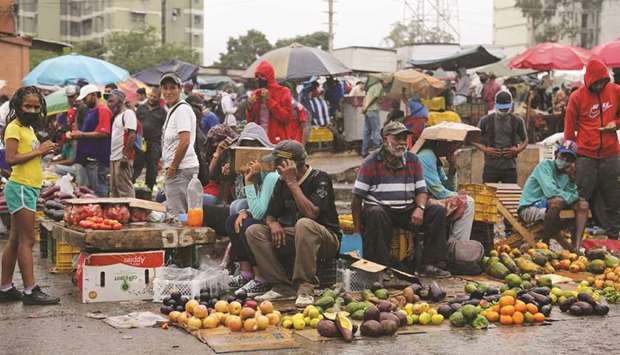Three days a week — down from six before the pandemic — some 10,000 people, including retailers and consumers, pack into the state-run Coche Wholesale Market.
The produce is trucked out to the city’s supermarkets, providing a lifeline amid Venezuela’s six-year economic crisis.
“Caracas depends on this market,” its administrator Walter Rivera said in an interview, adding that about 17,000 tonnes of goods are sold there each month.
But the open-air bazaar, where people pay little heed to social distancing though most wear masks, upsets President Nicolas Maduro’s government’s efforts to stop an accelerating number of coronavirus cases from overloading Venezuela’s dilapidated health system. So far authorities have confirmed 20,206 cases and 174 deaths, though the opposition and medical NGOs warn that testing is insufficient.
On July 29, authorities limited the opening hours of wholesale markets across the capital to between dawn and 2pm.
Coche is a “potential site of high contagion” due to its lack of social distancing, Jose Manuel Olivares, a health adviser to opposition leader Juan Guaido, said in an interview.
Maduro ordered harsh lockdown measures in March which slowed the virus’ spread, but basic goods shortages forced many merchants to return to wholesale markets to make a living.
“If you don’t go out every day you don’t eat,” said Moises Rojas, 23, who sells carrots, potatoes and onions in Coche.
Rojas, one of the market’s 3,500 workers, said on pre-pandemic days he could sell three 45-kilogram sacks of carrots. Now, he may sell only five kilos.
Some traders lugging sacks and pushing carts around the market said they feared getting infected, but they were more afraid the government would stop them working.

